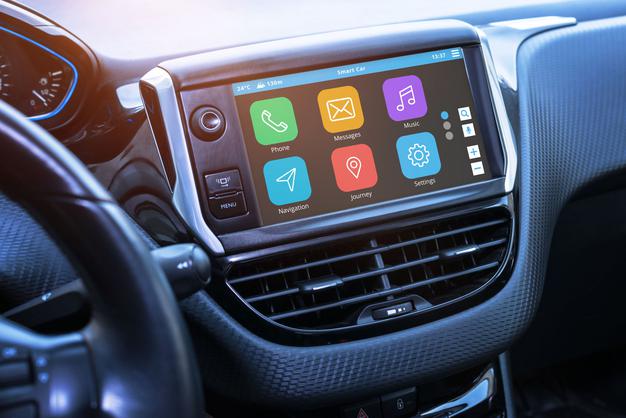The car industry is constantly evolving, and as experts in the field predict, in the not too distant future the market will be dominated by fully autonomous vehicles, which will turn the driver into a passenger.
Until the cars manage to "know" the best route to reach the destination, the determination of the route is, as before, the task of the driver.
So, another industry that is on an upward trend is that of dedicated car navigation systems. Contrary to popular belief, dedicated navigation systems are not the same as traditional car GPS systems. Dedicated navigation are in-car integrated systems that, although based on GPS functions, come with the ability to take control of the steering wheel, include radio, online TV, touch screen and can connect via Bluetooth or Mirrorlink with the phone.
Also, most car browsers have the Android operating system, which allows you to download used applications from your Google Play Store on your mobile phone. Internet connectivity can be done via WI-FI or USB port to which a 4G stick can be connected.
In the digital age, where the mobile phone is replacing the clock, the camera, the calendar and even the maps, there is a debate about the appropriateness of dedicated navigation. The answer is simple. New car models launched in recent years allow the smartphone device to be connected to the on-board multimedia system via Apple CarPlay or Android Auto. Basically, the two devices integrate perfectly to offer the driver a pleasant driving experience.
If you do not have such a vehicle, there are three ways to make your journey enjoyable and safe: use Waze / Google Maps applications on your smartphone; use a standalone GPS device or a dedicated navigation system that allows you to connect to and take over your mobile phone.

But what is the right solution?
While the smartphone seems to bring with it the solution of all problems, being accessible, common and permanently with you, it also has a number of disadvantages.
Compared to the screen of the dedicated navigation system, the screen of the smartphone is visibly smaller, and it can reflect the sun's rays in a way that is annoying to the driver or can reduce the driver's field of vision if mounted on the windshield. Compared to the brightness of the smartphone, the screens of the integrated navigation are much brighter during the day and have a more generous size being designed so as to give you the same image quality regardless of external factors.
At the same time, the online maps presented by your smartphone are partially downloaded during your trip, becoming unusable when you travel in an area without a signal. In the case of dedicated navigation systems, you will not encounter problems with the signal of the mobile phone network because you will always have the maps saved in the navigation memory.
Another benefit of car GPS navigation dedicated to Android is the ability to use mobile GPS applications such as Waze or Google Maps with a better GPS signal than a mobile device. Smartphone maps, not only take up storage space, but also lead to overloading the battery and heating the mobile device. On the other hand, integrated navigation does not require loading and there is no risk of unloading when you need it most.
Simultaneous functions of the dedicated navigation system can also be multiple. For example, you have the option to listen to music and enjoy both the route display and the audio guide. In addition, the dedicated navigation systems have a design adapted to the passenger compartment, the clarity of the indications being superior, and their location allowing you to access the necessary information at a glance.
Last but not least, there is no risk that notifications will appear on the screen that will overlap the maps, and you will miss important directions on the road, the attention being directed towards driving.
